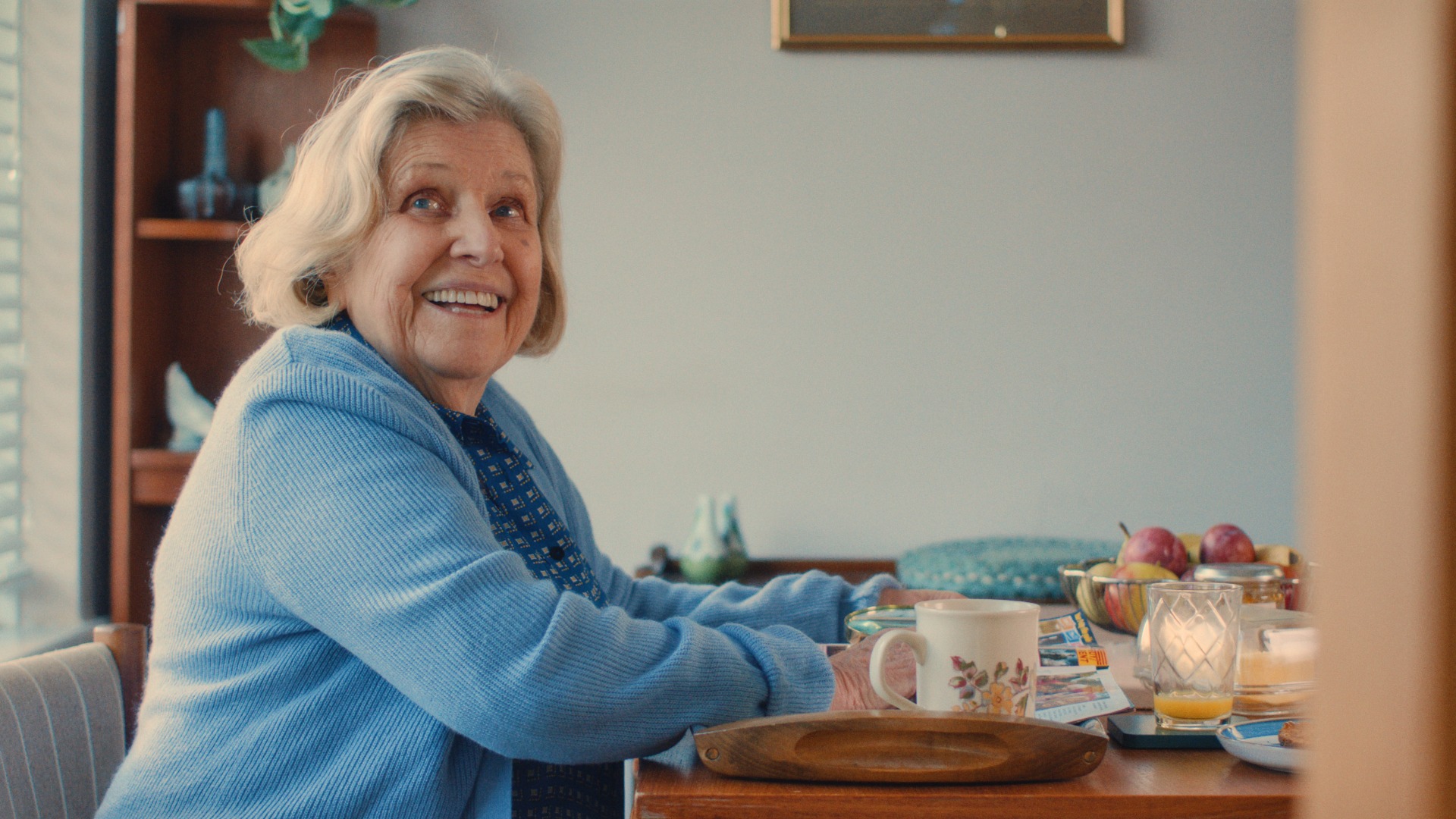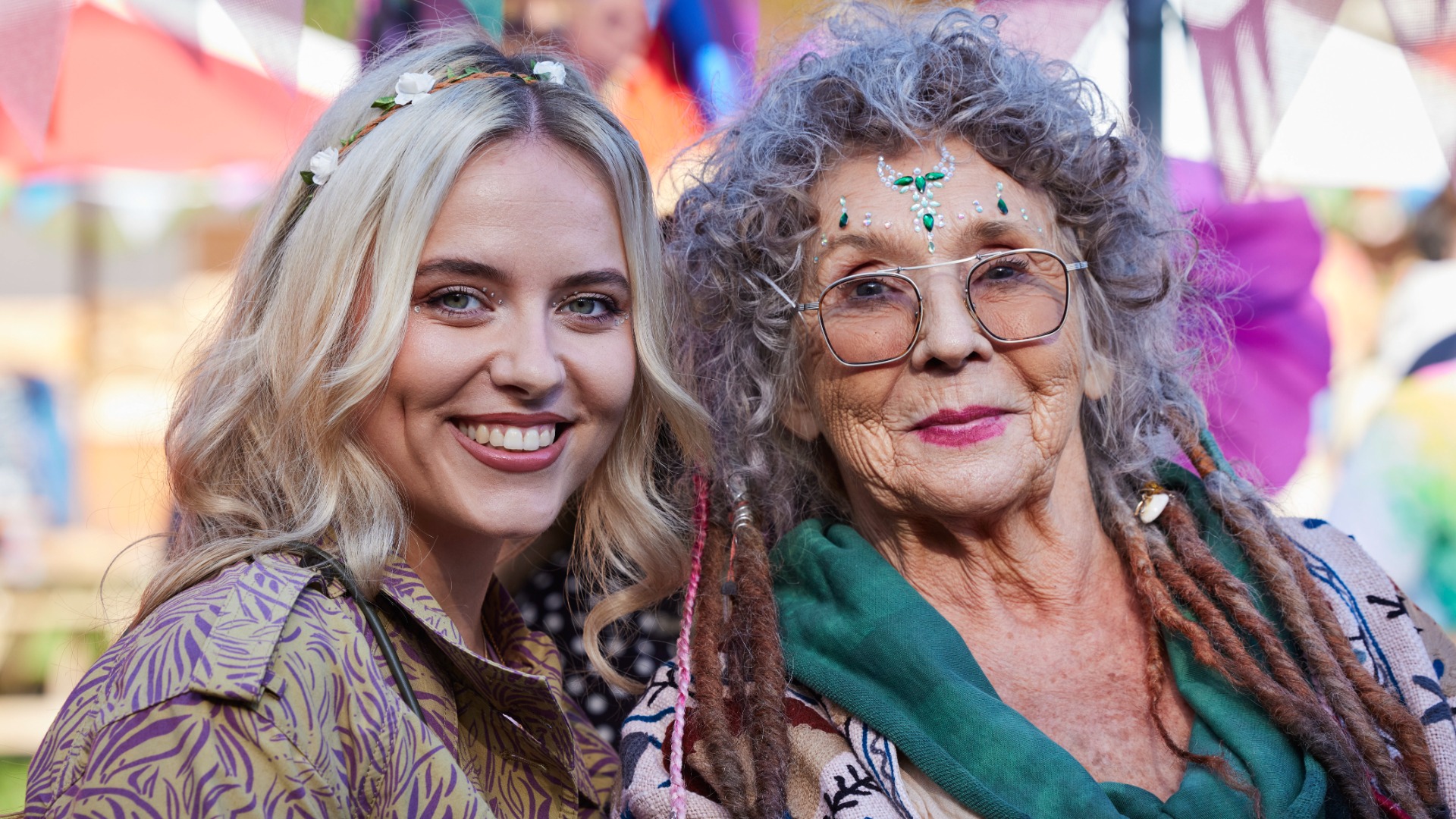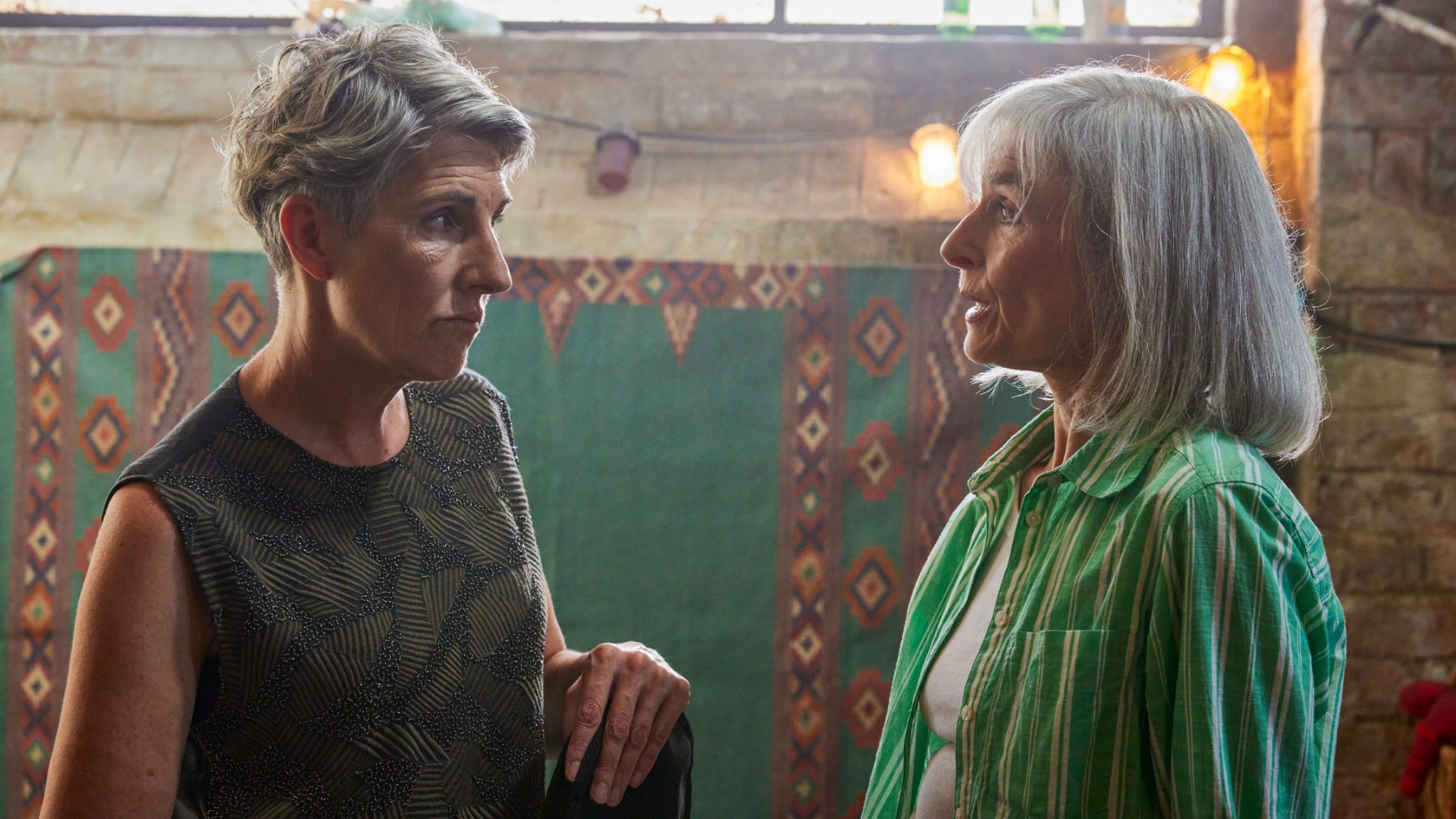Riot Women's quietly devastating portrayal of dementia is 'one of the most accurate on TV'
Anne Reid and Sue Johnston as Nancy and Mary carry the show's dementia storyline perfectly


While Sally Wainwright's Riot Women has been grabbing headlines for shouting loudly about menopause, female rage and the invisibility that comes from being a midlife woman, it's one of the underlying themes that's grabbing hearts.
The quietly devastating portrayal of dementia is one of the show's unsung heroes. Viewers with experience of the world-shattering condition have been praising the characters of Nancy (Anne Reid) and Mary (Sue Johnston) as "the most accurate portrayal of dementia on TV."
This shouldn't be surprising, as the entire series is semi-autobiographical and based on Sally Wainwrights experiences both of the menopause, and as a person who cared for a parent with dementia. Lived experience serves as both a sad reminder of the realities of a condition and shuts down Nancy and Mary being written as stereotypes rather than human beings.
Like Tamsin Greig's character, Holly Gaskill, Sally was once a "sandwich" carer, caught between children who still need some level of parental input and a mother who is becoming more dependant - her husband walked out six weeks after her mum was diagnosed with dementia leaving Sally to "sandwich" alone.
The writer has used her experience to avoid the way some previous TV depictions of mental decline amplify dementia stigma - or even worse, slip into unhelpful parody.
However, while Mary and Nancy do provide moments of humour in Riot Women, ("everyone goes out in their pyjamas, haven't you been to Lidl?") it's not to laugh at their expense, but to offer examples of the occasional absurd situations those caring for dementia patients will find themselves in - and they do come often.

Mary stands for those on the brink of dementia, where the line is blurred between whether she's having some age-appropriate memory issues or bordering on full descent into the condition.
Sign up to our free daily email for the latest royal and entertainment news, interesting opinion, expert advice on styling and beauty trends, and no-nonsense guides to the health and wellness questions you want answered.
The way she dresses and presents herself - throwing out sly barbs here and there - could easily be simple quirks of her personality, or indicative of neurological changes she has no control over.
"Keep an eye on Auntie Mary" urges Jess, having an inkling Mary possibly shouldn't be left to her own devices, factoring her into the rota of care duties despite protestations from Mary that they aren't needed.
However, it's Nancy and Holly's relationship that is the most emotional. There's little moments that dementia carers will understand that Holly takes in her stride so well - including an ongoing insistence common with the condition, that small, innocuous things don't belong to them.
For Nancy, it's biscuits. For others, it can be anything from their clothes to their glasses, to anything they've always had in their home that suddenly seem alien. Holly is left navigating how to let her mother know her things do belong to her, without contradicting and compounding Nancy's confusion to the point of anger.
"For her it's real and she's frightened," Nancy has to remind her sister, Yvonne, who dismisses parts of her mother's dementia personality as an annoyance.

There's also the big moments. Those huge, sad moments where the dementia is so overpowering it barely leaves space for anything else in the room. Riot Women navigates these scenes with similar brilliance.
Sitting having a quiet moment, Nancy realises she hasn't seen her parents in some time. She misses them and would really like to see them, actually.
Holly can't play to her mother's reality here, gently breaking the news that Nancy's parents have been dead for some time. And here is the real kicker of the condition - Holly witnesses her mother's grief at reliving the death of her parents, while grieving the loss of her own parent - who although still living, is no longer really there.
Both mother and daughter live in a Groundhog Day nightmare of a grief carousel they'll never be able to stop and get down from.
For Holly, this scene must make the burden of what she thought her newly retired life might look compared to the reality, so much heavier. Just as she thought life might be getting easier, BANG, she's catapulted right back into the role of a carer once again.
A post shared by Sally Wainwright (@sallywainwrightofficial)
A photo posted by on
For an expert opinion on how dementia is conveyed in Riot Women, we spoke to Paul Edwards, Chief Nursing Officer at specialist dementia nursing charity, Dementia UK, who offered his insights into the series.
Paul says, "Riot Women, is very illuminating in many ways, and the portrayal of dementia in the series is carefully and thoughtfully done. It is a good example of how media can, if done correctly, raise awareness of the challenges that people living with dementia and their families face."
To add context to the amount of people affected by the condition, Paul adds, "Riot Women puts a spotlight on the estimated 1.4 million people in the UK who are sandwich carers – people who care for both their parent or elderly relative and a child - who brilliantly, and often stressfully, strive to cope and adapt to ever changing situations."
“Every day, Dementia UK hears from people who are struggling to juggle caring, work and relationships. We understand the challenges that sandwich caring can bring, and are there to support people who might find themselves in a similar position to the character Holly in the show."
If you are concerned about somebody with dementia and would like support or information about the condition, Dementia UK has resources that can help.

Paul has over 30 years of experience working in health and social care nursing, dementia and nurse leadership and has worked across the NHS, academia, and the independent sector.

Lucy is a multi-award nominated writer and blogger with seven years’ experience writing about entertainment, parenting and family life. Lucy worked as a freelance writer and journalist at the likes of PS and moms.com, before joining GoodtoKnow as an entertainment writer, and then as news editor. The pull to return to the world of television was strong, and she was delighted to take a position at woman&home to once again watch the best shows out there, and tell you why you should watch them too.
You must confirm your public display name before commenting
Please logout and then login again, you will then be prompted to enter your display name.